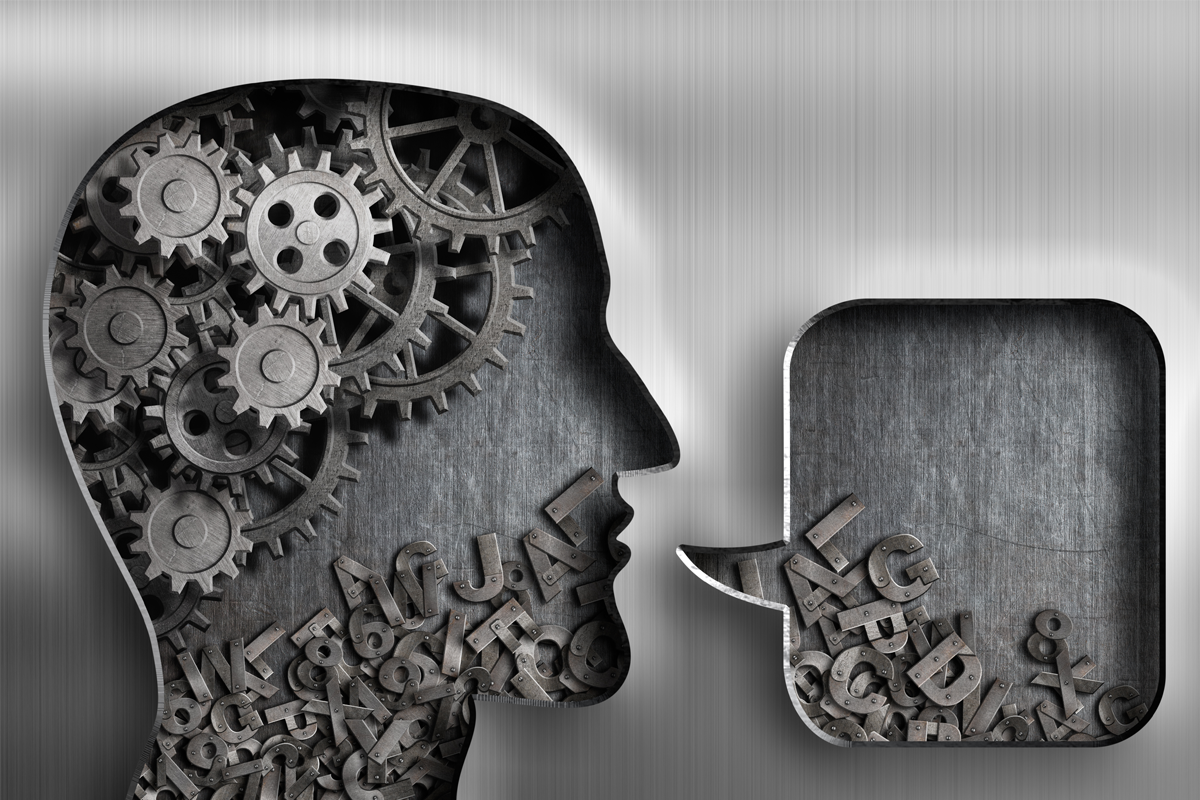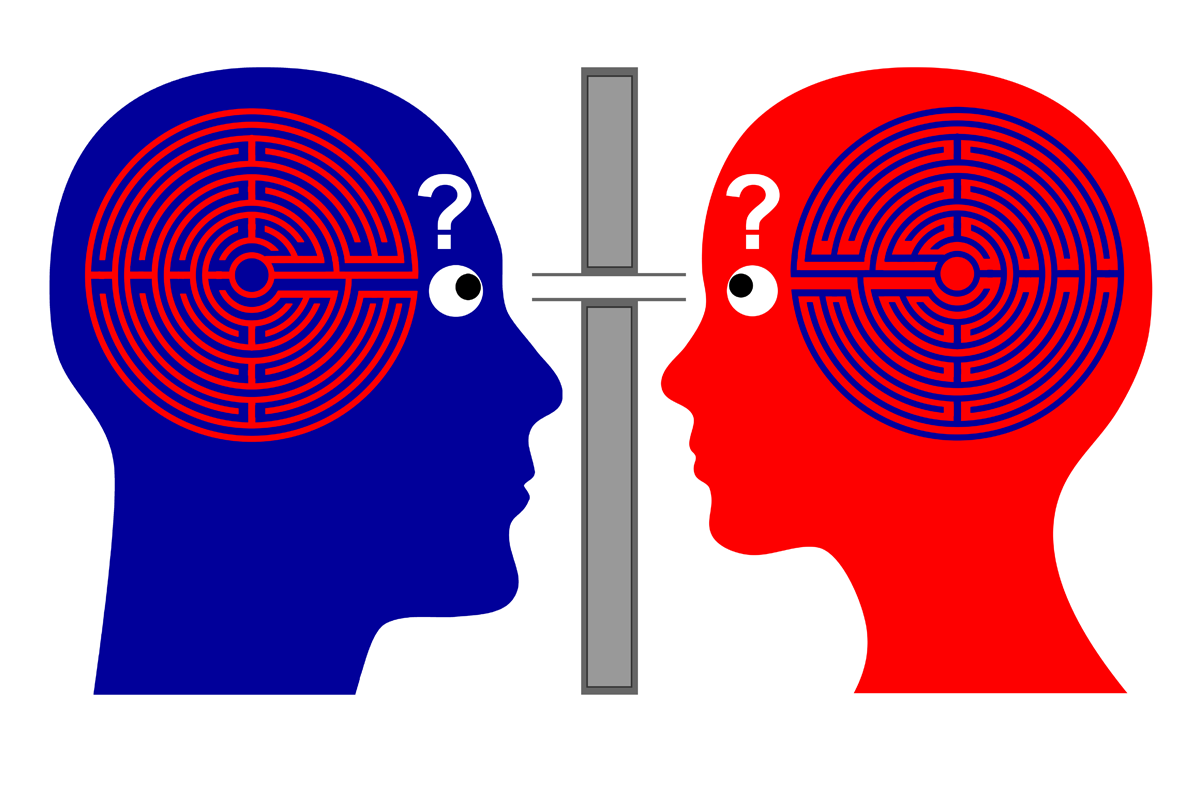Economic Secrets For Healthy And Happy Relationships

If you are interesting in dating in any way other than specific “how to” information, it won’t take long before you come across a concept of “Sexual Market Value” or SMV. It’s very tempting to borrow economic and sales terms when speaking of dating or seduction. However, misusing metaphors when trying to describe a more complicated underlying phenomenon can lead to misunderstanding.
The map, as they say in NLP, is not the territory. Metaphors are only useful if they help us to understand the underlying process or system better. If we want to understand that “something” only for a philosophical discussion, that’s one thing. But if we want to gain understanding of any system with the intention of improving our results within that system, then we’d better make sure our metaphors are accurate.
Law of Attraction Example
Don’t worry, this is just an example. The “Law of Attraction,” (LOA) is described as one somehow resonating with one’s environment. That you attract whatever is on the same wavelength that you are “vibrating.” An example that is commonly given is banging on one middle C on a grand piano, and getting the other middle C to vibrate on a nearby piano. In physics, this is called “sympathetic vibration.”
But as an instructional model of “creating” something (wealth, relations, etc.) it falls short. How, exactly are you supposed to “vibrate?” Consider this word: Dog. What does, “dog” mean to you? Everybody that reads this will have a different idea of what that simple, three-letter noun means.
If one simple noun creates different thoughts in different people, how the heck are we supposed to “vibrate” to attract something? If I were to try and “vibrate” to create $100, and you did the same, how would the “universe” know which of our “vibrations” were most closely associated with $100?
LOA Just An Approximation

Of course, if you know anything about LOA (regardless of what system or method, etc.) you know that real life is much more complicated. When two people are talking, and they “click” there isn’t really a “clicking” sound. When they say they are on the same “page,” nobody is holding a book.
When they say they are on the same “wavelength” it seems a little closer. We all sort of “know” what that means, we certainly like the feeling when we experience it, but how can we describe it with any amount of precision?
Usefulness Of Vague Metaphors
Two different people talking about the LOA will generally agree with what those vague metaphors mean. Two different people talking about how they “click” when they talk, or when referring to previous conversations with other people will understand what that means. This is one necessary use of these vague, metaphorical descriptions. They help us to identify a collection of feelings or ideas, so we both are talking about the same thing.
Vague Metaphors Not Helpful In Creation

Suppose you’ve never “clicked” with anybody. Suppose you wanted to learn how, and you asked people how, exactly, do they know when they are clicking? How do they know when they’ve reached peak “clickiness” and the “click level” of the conversation is winding down? This is our goal, to wade through all the metaphors used to describe dating and seduction and try to come to a more accurate understanding. We don’t want to just know what people are talking about. We want to improve our relationships and to be more easily capable of seducing whomever we want.
Basic Laws Of Economics
Wait, what? Relax, we won’t be using any calculus. We will be going over some very basic principles that involve human decision making. Why people do things. Economics is one of those vague Orwellian-speak words that can mean whatever the user wants it to. Here we only mean the basic process of human decision making. To economize means to maximize efficiency.
First Supposition
The first rule of human economics is that all else equal, we want something sooner rather than later. If somebody owed you ten bucks, all else equal, you’d want it now instead of a week from now.
Second Supposition
The second rule or assumption is that whenever we put effort into getting something, we’d rather put in less effort to get the same thing, compared to more effort to get the same thing. The corollary to this is we’d rather get more with the same effort compared to less for that same effort.
Third Supposition
This one is not as obvious as the first two, so we’ll have to think about it a bit. This one says that all human desires are subjective, and can only be arranged ordinally. What does this mean? It means when we think about the things we want, we can’t put any objective value on how much we want them. We can only compare two desires and choose which one we want more.
When we think about the things that we want, it’s tempting to put a dollar value on them. We’ll sort this out a bit later, but this is a misunderstanding. It’s easier to understand if you think of wanting something to eat, and only having five bucks. You could buy a lot of things for five bucks, so according to who was selling them, they’d all have the same value.
But from inside your own brain, as you stand there holding your five bucks, you’re essentially comparing several pairs of trades. A double cheeseburger for five bucks gives you a certain feeling. A carne asada burrito for five bucks gives you another feeling. You’ll make your purchase-decision based on whatever feeling you think will give you the highest level of subjective satisfaction.
Fourth Supposition
This next idea is when we think of any kind of exchange. This can be putting in work in the form of calories, or trading baseball cards, or paying five bucks for the tacquito platter. We will only take action of any kind if we feel we are better off after the action has taken place. When you trade Pokemon card with your buddies, for example, you only make a trade if you want the card you don’t have more than you want the card you do have.
If you are sitting in your EZ chair watching Netflix (wishing you had somebody to chill with) you will only spend the calories to get up, walk to the fridge and get another beer if you believe that, when considering all possibilities, you’d be better off spending the calories to get the benefit.
Fifth Supposition
The next idea is that all action involves trade. Trading cards, buying things, trading your present state for a future state. All involves trade. You have a certain present state. You look out into a potential future state. You decide the cost required (energy, calories, etc.) to make the trade. If it feels “good,” you do it. If it doesn’t feel “good” you don’t do it.
Sixth Supposition
Whenever there is trade between two individuals, it will only be freely done if it is mutually beneficial. You will only trade your five bucks for the cheeseburger if at the time of the exchange, you want the cheeseburger slightly more than the five bucks. This is a critical understanding, so let’s make sure we get it.
Mental Experiment
Think of something you purchases or traded for recently. Think of how you felt just before the trade (or purchase) and how you felt just after. Now compare that change in state (which would be a slight increase in happiness or satisfaction) with this goofy idea: You and your buddy are standing there, you can pull out a $20 bill, he pulls out one, and you trade bills. Can you imagine this in any way where it gives you the same feeling of satisfaction of actually trading for (or purchasing) something you want?
Trading something you have, for something that you value exactly the same (as in trading a twenty for another twenty) doesn’t make any sense. We only trade (energy for benefit, money for food, tit for tat) if we subjectively value what we get more than what we give. This is when we consider everything, even things that often exist on a subconscious level.
All Trade Of All Kinds Must Benefit Both Parties

Any time two humans are making any kind of exchange, both conscious or subconscious, they must feel a net benefit in terms of what they do, and what they get. This is more or a less a summary of what we just described above, but it’s vital to understand if you want to make sense of any human relationships.
Temporal Considerations And Relationships
When you buy a cheeseburger, you give something now and you get something now. However, when you are in a relationship, you are giving and getting now, and you have a collection of expectations about what you’ll give and what you’ll get in the future.
Relationships will stay mutually beneficial only when both parties believe that the actions they pay now, combined with all the actions they expect to pay later, will get them something, both now and what the expect in the future, that is subjectively more valuable to them than their subjective value of what they are giving.
Subjective Values Change Over Time
What makes it more complicated is our subjective values will change over time. What we think is easy today might not be easy a few weeks from now. What we get may seem fantastic today may not seem so fantastic a couple weeks from now.
Consistent Measurement

Whenever we are in a relationship, we are always asking ourselves the following question (below), either purely subconsciously, which results in how we feel about the relationship. This question is partially consciously and subconsciously, when we have a conscious discussion (with ourselves or with others) regarding these feelings which arise from these subconscious considerations. This question is sometimes wholly subconscious, and all we know is how we feel about the relationship.
Relationship Bottom Line Question:
Is the effort I am putting in now, combined with the effort I expect to put in the future, as I subjectively measure it now, worth what I am getting now, combined with the value I expect to get in the future, as I subjectively measure it now?
As long this answer is yes, either as a feeling or a conscious decision, we will feel happy about our relationship. The stronger this yes feels, the better we’ll feel about our relationship. The weaker this yes feels, the less happy we’ll feel about our current relationship.
Wandering Eyes

To make things even more complicated, consider the idea of leaving one relationship and getting into another one. It still must be forced through this same subjective value-trade consideration, which informs all our actions:
Am I going to get something that is more valuable than what I think it will cost me?
Unhappy Relationship Example
Let’s say you’re in a relationship, and you are less than ecstatic. Suppose something just “happens.” Maybe there’s a new person at work, and you start talking to them. The more you talk to them, the more you start find it easier and easier to imagine being in a relationship with them. The question is always this:
If I leave my current partner, and start a relationship with this person, will the net outcome be positive or negative?
To answer this, you need to consider:
- The costs (usually emotional) of leaving your current relationship, both now and in the future.
- The benefit (usually emotional) of entering into this new relationship, both now and in the future.
- The likelihood of this new relationship working out and getting the positive benefits you hope for.
Different Strategies For Different People
This is where morals and ethics come into play. For some people, cheating on their partner is considered immoral. What does this mean? This means that the emotional pain of being a cheater is more than it is usually worth. Understand this is purely subjective. Somebody that doesn’t think cheating on somebody they aren’t married to isn’t such a big deal will have an easier time (their subjective emotional costs will be lower) sliding from relationship to relationship with plenty of overlap.
Sources Of Relationship Problems
If you paid ten bucks for a mystery meal at your local burger shop, you’d be upset if you only got a box of crackers. Few people will pay money for something unless they know exactly what they are getting. However, most of us enter in relationships only with the hope that things will work out.
Two Extremes
On one extreme, you could have the tightest criteria and only get into relationships with the absolute perfect matches. Needless to say, this would be a lot of work. On the other end of the spectrum, you could just end up with whoever you end up with and hope for the best.
Ignoring Economic Considerations Does Not Negate Them
This economic considerations are happening all the time. We are always measuring our current state and comparing it to potential better state. The more we make assumptions about what we will get in exchange for what we give, the more chances for error.
Relationship Assumption Problems

Major relationship problems arise from making some very common assumptions. One is that the other party (our relationship partner) values something we are doing today just as much as they valued it before. This is rarely true. The cute thing you loved so much about your partner in the beginning is usually the thing you hate about them at the end. They are doing the same thing, but you value it much differently than they did before.
Another common assumption is that the needs of our partner today are the same as they were before. Many marriages end when one partner thinks everything is perfectly fine, but the other partner has been getting the nerve to leave for years. One partner is thanking sweet Jesus to be out, while the other partner, (due to their assumptions) is absolutely devastated.
Relationship Management Strategy
The most vital thing (if you want to keep your relationship healthy) is to not take anything for granted. This is very hard. We don’t like asking questions because we might not like the answers. We might not be able to deal with the answers. So a very common tendency, even when we suspect a problems is we hope it takes care of itself. It is this attitude that keeps auto repair shops in business.
But if you really value your relationship, force yourself to see it through the lens of economics. Don’t be afraid to ask yourself (or yourselves) these tough questions:
Is what you are getting worth what you are giving?
Is what your partner getting from you, worth what they are giving to you, from their own subjective viewpoint?
Is this “relationship profit” stable?
Is it increasing?
Has it been decreasing?
Relationship Management Tricks
Desire is very fungible. If you are hungry, you can satisfy your hunger with plenty of different things. If you want a pair of shoes, you can satisfy your shoe desire with a lot of different shoes. Consider that your partner’s relationship desires are similarly fungible. Some people ask simple questions like, “what do you want?” which can be very hard to answer. These questions are also very lazy, as they put the burden on the answerer.
The temptation is ask these lazy questions, not get a very precise answer, and then later claim it’s not your fault for not fulfilling your partner’s desires. After all, you asked what they wanted, they didn’t tell you, and that meant everything’s fine. But consider another strategy. Consider asking about things you know they want, and simply expanding on those things.
Talking About Desires Feels Good

When somebody asks us about things we want, and they don’t judge us, it feels pretty good. When people talk to us about what we want, don’t judge us, and they help us get much more specific about what we want, it feels really good. And guess what, it will also teach us things about what our partner wants that they aren’t getting. If we can figure out way to help them get it, they’ll not only value us more, but they’ll value the relationship more.
Talking About Sexual Desires Feels Fantastic
Want to make sure your partner never, ever leaves you? Ask them about their sexual fantasies. Do it in a way that makes it very easy for them to answer. This is a very powerful and very easy technique. First, ask them if they have any sexual fantasies. If the say yes, tell them to close their eyes. Then play a guessing game, called, “Either or.” Start in very broad categories, and get more specific.
Either Or – Example
Set up which side (right or left nod) means which answer. Tell them to close their eyes. Touch one hand for one choice, and the other hand of the other choice. Tell them they only need to nod their head one side or the other for their answer. Tell them to think of the craziest sexual fantasy they can think of. (No judgement allowed! Only do this if you can handle this!) Then start by asking them broad, either-or questions. Is it inside or outside. Are you alone or with other people? Are you naked or wearing clothes? Keep going until you’ve got the most juiciest part.
Either Or Everywhere
Any time you want to know about any of their desires, you can play the either-or game. The more you do this, the more you’ll know about what they want. The more you know about what they want, the easier it will be to keep them in relationship-profit territory, where they feel they are getting much more than what they are giving.
Always Respect The Competition

No matter who you are, who your partner (or future partner) is, understand there will always be competition. Their friend might have just gotten divorced, or dumped, or cheated on, and we know how much misery loves company. You never know who they are going to be standing in line at Starbucks next to. You never know what their friend’s partner just did for them, which they will automatically compare to what you just did for them.
Best Defense Is Good Offense
If you want to create and maintain a good relationship, take responsibility for it. Make sure you are so valuable to them they would never dream of cheating. Give them so much satisfaction (by consciously keeping them in relationship profitable territory) it would always seem like a net negative to leave you.
Advanced Tactics – Scarcity

This is a very powerful tool that can always be employed. If you text regularly, and you want to increase the passion, hold off for a few minutes or even a few hours before returning their texts and calls. If it is the beginning of the relationship, make every time you see them unexpected. Meaning don’t set the next date at the beginning of the current date. Say something simple at the end like, “I really enjoyed this, I’ll call you later, OK?” Don’t tell them when. Let them think about you and wonder.
Other Considerations – Flexibility Of Truth
Have you ever gone on a diet? You promised yourself you would never, ever eat a cheeseburger again? When you said that (or something similar) were you lying to yourself? No, you meant it. Yet there you were, a few days or weeks later, eating another cheeseburger (or whatever you swore off for life). Consider that the human idea of truth is a very flexible concept. When we say things, we mean them, in the moment. But later? Not so much.
A high school kid who hasn’t yet slept with his virgin girlfriend will tell her he loves her. He will mean it. He believes it. But then they sleep with each other a few times and something changes. From her perspective, it seems like he lied. He was telling her he loved her for months, she believed it, she thought they would be together forever, that’s why she finally slept with him.
But not he’s not even talking to her anymore. Did he lie? No, he did not. When he said he lover her, he really did. But he loved the, “I haven’t slept with you yet” her. From his perspective, the, “I’ve slept with you a few times” her is a different person.
This isn’t fair, this isn’t right, but humans are emotional creatures. We are not logical. We sure like to think we are, but when we say things, and we believe we are telling the truth, it’s really the truth at that point in time, based on that unique situation in time. Since our unique situation in time is always changing, so is our truth.
Always Calibrate Truth

Consider that even though your relationship partner told you something awhile ago, and there’s no reason to believe it’s any different, it might not be the same truth, from inside their subjective perspective.
Consider that anybody’s current truth about anything regarding emotional feelings will always be in flux. Consider that actions are a much more accurate description of any truth than any words. Combine this with the idea that truth is always a fluid thing (with regard to relationships and feelings) and you’ll have a better understanding.
Relationships Are Not Set And Forget
Consider that in the modern dating world, relationships are far from the set-and-forget things they were a few decades ago. They take work to create, and they take work to maintain. With the right relationship with the right person, anything is possible. Consider a positive, healthy relationship a very valuable resource that requires a consistent level of management concomitant with it’s value.
Commitment Is An Action

Most people think of commitment is a thing that the other person gives you. This is in the form of a promise that generally means exclusivity. Consider, however, that this form of stated commitment is very weak, and actually creates moral hazard. Both people in the relationship feel they are “in” a commitment. That work is done. They can relax, let their hair down, and lose their edge. This is the very behavior that makes relationships fall apart.
Consider that if you want a commitment from the other person, it is your duty, and it will always be your duty, to keep them wanting to stay with you. To make them always want you more than anybody else they could have. This isn’t easy. This isn’t common. But with some of the ideas in this post, you can create a relationship that is healthier, and much more stable than most. If you want it, you can have it, but only if you assume the responsibility of creating it, and maintaining it.
Learn More

Mind Persuasion has many courses and books designed to help increase your communication skills, relationship skills, and seduction skills.
Mind Persuasion Books
Mind Persuasion Courses